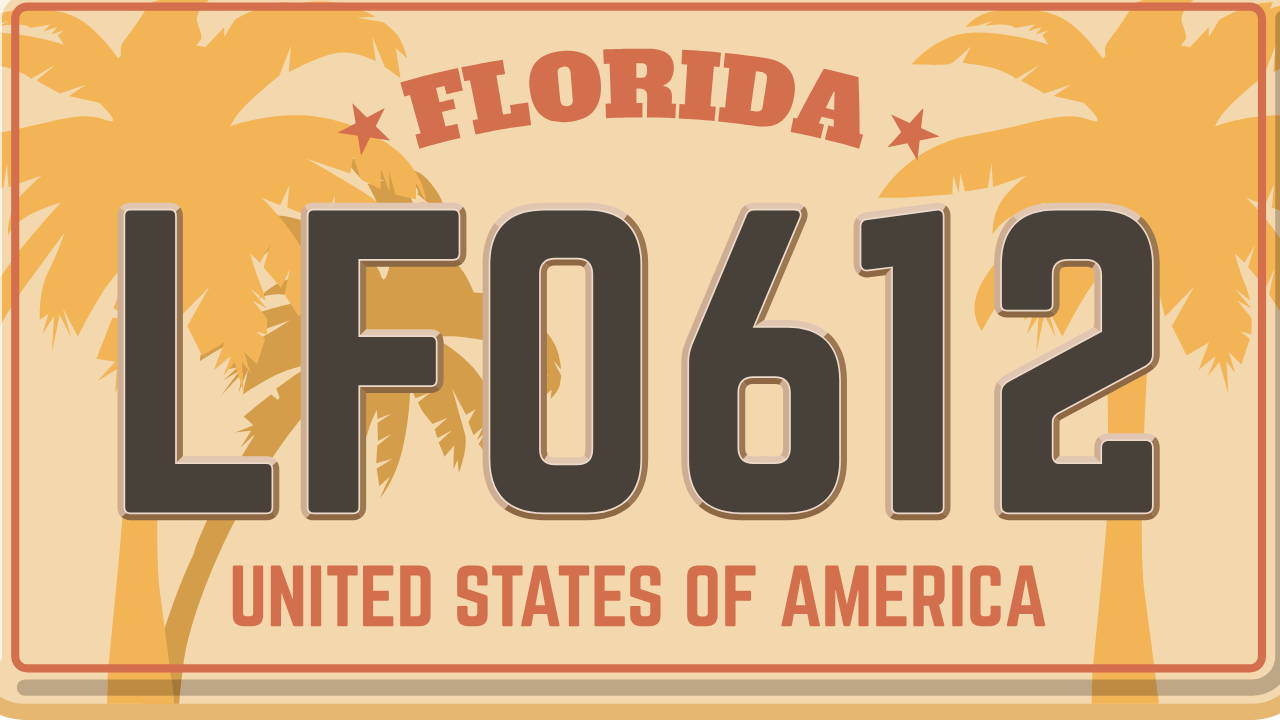Language:
Launching a Nonprofit in Florida: Step-by-Step Guide

Starting a nonprofit business comes with more considerations as compared to a for-profit business. The legalities and documentation are somewhat more complex and under higher scrutiny as compared to a private business.
So, if you are a resident of the state of Florida, and want to work for the greater good of the community, you have to complete all the state-specific legalities. Further, you have to go through the process of obtaining tax-exempt status from both – the Florida State and federal government.
Now, for a person with a limited understanding of the documentation and legal requirements, the entire process can be a bit overwhelming and tedious. You have to complete and file different types of forms at different offices and in a proper sequence. And, even a single mistake can set you back by months.
So, here is a detailed step-by-step guide for a comprehensive understanding of the entire process and expert tips to make your journey a cakewalk!
What is a Nonprofit?
A non-profit organization, also commonly called a “non-profit,” is a business entity that works towards community betterment and operates for purposes other than generating profits for the owners or board of directors. The entity, though a business structure, is dedicated to serving the public interest or a specific social or charitable cause.
Nonprofits focus on a wide range of causes, such as education, women empowerment, healthcare, youth development, environmental conservation, social justice, criminal rehabilitation, etc.
People who wish to make an impact on society or utilize their passion/skills/network for uplifting the weaker and often ignored sections of society tend to form these entities for proper functioning and judicious funds management.
Understanding Nonprofit Basics in Florida

Organizing your nonprofit business comes with formation, documentation, and reporting, all of which vary across states. Before we begin with the entire process, let us get the basics covered for launching a nonprofit business entity in Florida.
Researching Your Cause and Its Need in the Community
Choose a unique, impactful, and genuine cause that can actually make a difference for the society and community in the State of Florida. For example, upskilling youth for vocational purposes, helping single fathers with children with volunteer childminders, and more.
Now, to identify the current pain points of society, conduct comprehensive research, and find genuine issues that you can solve. Given below, is a list of granular steps that you can take:
- Identify your cause
- Conduct a needs assessment to identify the specific challenges and gaps related to the chosen cause within the community.
- Explore existing nonprofits and initiatives related to your cause. If they are already doing what you plan to do, consider collaborating or partnering with them.
- Engage with community stakeholders to make a bigger impact.
Learning Florida’s Specific Nonprofit Regulations
✔️ Naming Requirements for Compliance with Florida’s Department of State
As per the Florida Nonprofit Corporation Act (Chapter 617, Florida Statutes), your nonprofit’s name must be unique and distinct from the names of other businesses that are already registered with the Florida Division of Corporations. This includes the names registered/reserved as trademarks.
Opt for a name that resonates with the mission and vision of your nonprofit. For example, if your nonprofit is focused on religious communities and empowerment, you can consider these Christian names for your business.
We recommend doing a thorough search on the official website of the Florida Department of State: Division of Corporations and check that the name you chose for your nonprofit is not already in use. You should also steer clear of extremely similar names to avoid potential legal issues and infringement on the existing organization.
As you would also need a website for your nonprofit, we recommend checking the domain name availability for your organization.
✔️ Don’t Choose Restricted Words
Some words and phrases have been restricted by the State of Florida for use in a nonprofit’s name, such as engineer, trust, state police, insurance, bank, etc. If you still wish to use such words you must complete additional paperwork for special approvals.
✔️ Reserve the Name
Once you are done with naming your nonprofit, reserve it with the State by filing a Name Reservation Request with the Division of Corporations. You can reserve a name for as many as 120 days after paying the mentioned fee. During these 120 days, no other organization of any type can choose the reserved name.
✔️ Doing Business as or DBA Name
Finally, you have to choose a ‘Doing Business As’ (DBA) name if you wish to operate under a name different from the legal name of the nonprofit organization. For such cases, the state of Florida allows you to register a DBA name with the Florida Division of Corporations.
Crafting Your Nonprofit’s Mission Statement
Every organization should have a proper, reasonable, and goal-centered mission statement to help every stakeholder understand the greater purpose behind the incorporation of the organization.
Identifying Core Values and Goals
Identify the core values and goals of your organization. For example, if you wish to create a nonprofit that empowers single parents with kids, you need to identify what core values would be beneficial to them.
Likewise, you have to set clear goals to make sure your organization is actually making a difference.
Writing a Clear and Compelling Mission Statement
Once you have set core values and goals, the next step is to craft a compelling and concise mission statement. For instance, if you wish to create a nonprofit for single parents, your mission statement should be something like this:
Our mission is to support and empower single parents (mothers and fathers) in Florida with services, resources, and community connections so that they can be better and more capable caregivers and providers.
We strive to create a supportive and inclusive community where they can find the right support at the right time, and create more stable and fulfilling lives for their children and themselves. The goal of this organization is to break down all barriers and promote self-sufficiency among single parents so they can create a better future for themselves and their families.
Step-by-Step Guide to Starting a Nonprofit in Florida
Okay, now that we have the basics covered, let us move on to learn all the steps that are involved in launching a nonprofit organization in the state of Florida.
1. Name Your Organization
You must keep all the above-mentioned information related to naming an organization in Florida in mind. Once you are done registering your nonprofit or reserving the name, you are done with this step.
2. Recruit a Board of Directors
Next, you have to recruit a board of directors to give a formal structure to your nonprofit organization. Choose people who are established in their field and are passionate about your nonprofit organization so that you can rest assured that they will guide you along the way.
You have to choose the board of directors before filing the Articles of Incorporation with the State office because you have to submit their names in the Articles of Incorporation. If, however, you file your Articles of Incorporation prior to appointing the board of directors, you must appoint them through a written action.
Florida State Law requires a nonprofit organization to have at least 3 directors, and all of them have to sign the initial corporate documentation, set organization bylaws, elect other office holders, etc.
3. Appoint a Registered Agent
As mentioned earlier, a nonprofit organization is also a business entity so it needs a Registered Agent who will take care of all the legal, tax, and government-related correspondence on behalf of your organization. The Registered Agent needs to have a physical address from where they are running operations.
Also, they need to be present at this address during normal business hours to ensure that all the incoming communication/correspondence delivered in person by the officers of law is received by them.
If you want to be your own Registered Agent, you have to submit a physical address and ensure that you are available at that address during normal business hours. This can affect your privacy and restrict your movements for working in the community. So, you must hire a professional Registered Agent.
4. File the Articles of Incorporation
To incorporate a nonprofit in Florida, you have to file the nonprofit Articles of Incorporation. Your Registered Agent can also do this on your behalf. These articles are signed by both the incorporator and the Registered Agent.
The Florida Department of State has a generic Form CR2E006 for launching a Florida Nonprofit Corporation but it meets the minimum requirements for a tax-exempt status organization at the state level. The language is not specific to the standards of the IRS.
Hence, we recommend getting customized documentation from a nonprofit attorney drafted specifically for your organization.
5. Obtain Employer Identification Number (EIN)
Whether you hire employees or not, and keep on working with volunteers only, you must obtain an Employer Identification Number (EIN) for your organization. The EIN is a nine-digit number provided by the IRS as a unique identifier for a business.
You will need the EIN while filing for 501c3 status, other required IRS forms, and to open a bank account for your nonprofit. You have to fill out the IRS Form SS-4 to apply for an EIN. You can submit the form via phone, fax, mail, or online.
The online and phone-based submissions have an almost instantaneous turnaround, while the submissions done via fax will take around 4 business days and mail-based submissions have a turnaround time of 4 to 5 weeks.
6. Prepare Bylaws, Policies, and Governing Documents
Next, you have to prepare the nonprofit bylaws, governing documents, and policies to provide guidance to the board and ensure proper governance as per the State Government authorities.
Basically, you have to set specific provisions for proper governance and functioning, such as:
- Election/selection criteria of directors, like annual meetings, voting, etc.
- The modus operandi of the Board, or the process by which the directors can take certain actions.
- Detailed explanation of the nonprofit’s purpose.
- Process of calling board meetings, conducting them, and role delegation of each member
- Board and non-board committee authorization, etc.
- According to these bylaws and governing policies, you have to set the conflict of interest and other policies, such as dissolution policy, to ensure smooth and systematic functioning.
The State of Florida requires you to demonstrate to the IRS that the nonprofit’s board has approved and adopted three things – the bylaws, dissolution policy, and a conflict of interest policy. Without this, you will not be granted the 501(c) status.
7. Filing to Pay Florida Corporate Income Tax
All the business entities registered with the state of Florida have to file with the Florida Department of Revenue (DR-1: Florida Business Tax Application). This step is mandatory irrespective of the fact that your organization will later seek and get a tax-exempt status.
Once the filing is complete, you will get a Florida State Tax Identification Number that will be required for other filing purposes.
8. Hold the First Board Meeting
Next, you have to hold an initial board meeting in compliance with your nonprofit’s bylaws. The first meeting is called the organizational meeting of the board in formal language and has the following core objectives:
- Approve bylaws and order their adoption
- Select a tax year and accounting period
- Appoint officers for different departments as per the bylaws
- Approve any initial business or finance-related task, such as opening a corporate account
Legally, you have to create the minutes of the meeting and store them for record-keeping requirements as mentioned in your bylaws. We recommend getting in touch with tax experts for businesses to ensure all your filings are done properly and with minimal hassle.
9. 501(c) Tax Exemption Application for Federal Taxes
Next, you have to file for tax exemption with the IRS. The tax exemption application is over 100 pages long and requires a variety of supporting documents to ensure compliance with all the legal requirements.
To obtain tax exemption status under IRS code section 501(c)(3) for a nonprofit working as a charity or foundation, you have to submit IRS Form 1023 or 1023 EZ. Nonprofits, like religious organizations, qualify under IRS code sections 501(c)(4) or 501(c)(6), and have to file via IRS Form 1024.
The organizations filing Form 1023 must have gross receipts exceeding $50,000 in any of the past three years, assets amounting to more than $250,000, or projected gross receipts exceeding $50,000 in the next three years.
You have to attach proper finance proofs and records, copies of the articles of incorporation, conflicts of interest, and bylaws as supporting documents.
Form 1023 EZ is a lighter form of Form 1023, requires less documentation, and is used by organizations with smaller finances.
IRS Form 1024 is used by nonprofits seeking tax exemption under a code section other than 501(c)(3). Filing Form 1023 by mistake will lead to rejection from the IRS and you have to restart the entire process.
10. Apply for State Tax Exemption
After filing and getting approval for tax exemption under the 501(c) code, you need to file for tax-exempt status under the State of Florida. Failing to do so will put your nonprofit liable for a variety of State taxes.
Obtaining exemption from State taxes in Florida as a nonprofit organization calls for submission of Form DR-5. This is also called Florida Application for Consumer’s Certificate of Exemption.
You must file for state tax exemption only after you have got the tax-exempt status approval from the IRS, as you have to attach the approval as a supporting document.
11. Register for Charitable Solicitation (Fundraising)
Finally, you have to register your nonprofit with the Florida Department of Agriculture and Consumer Services for charitable solicitation before engaging in fundraising. Failing to do so can lead to significant penalties. Also, you have to renew your registration every year.
Launching a Nonprofit in Florida – How Can doola Help?
Once your nonprofit organization is set, you have to ensure ongoing compliance and fulfill legal obligations as required. Common compliance forms include Annual Reports, Corporate Reports (SI-100) or Statements of Information, Annual Return (FTB-199), Federal IRS Form 990, and Charitable Solicitation Renewal (Form RRF-1).
Error-free completion of legal obligations and compliance management can easily become a roadblock if you are not well-versed in the technicalities. This is where doola enters the picture.
doola is a business-in-a-box solution for founders from all over the globe who want to run their businesses in the US. We offer highly tailored business solutions, such as comprehensive tax compliance packages, bookkeeping, tax consulting, and more, for organizations of all sizes.
With doola as your partner, you can put your filings and documentation formalities on autopilot and make the most of your time and efforts as a nonprofit founder.
To know how we can assist you grab a free consultation with our experts today!
Keep reading
Start your dream business and keep it 100% compliant
Turn your dream idea into your dream business.


















